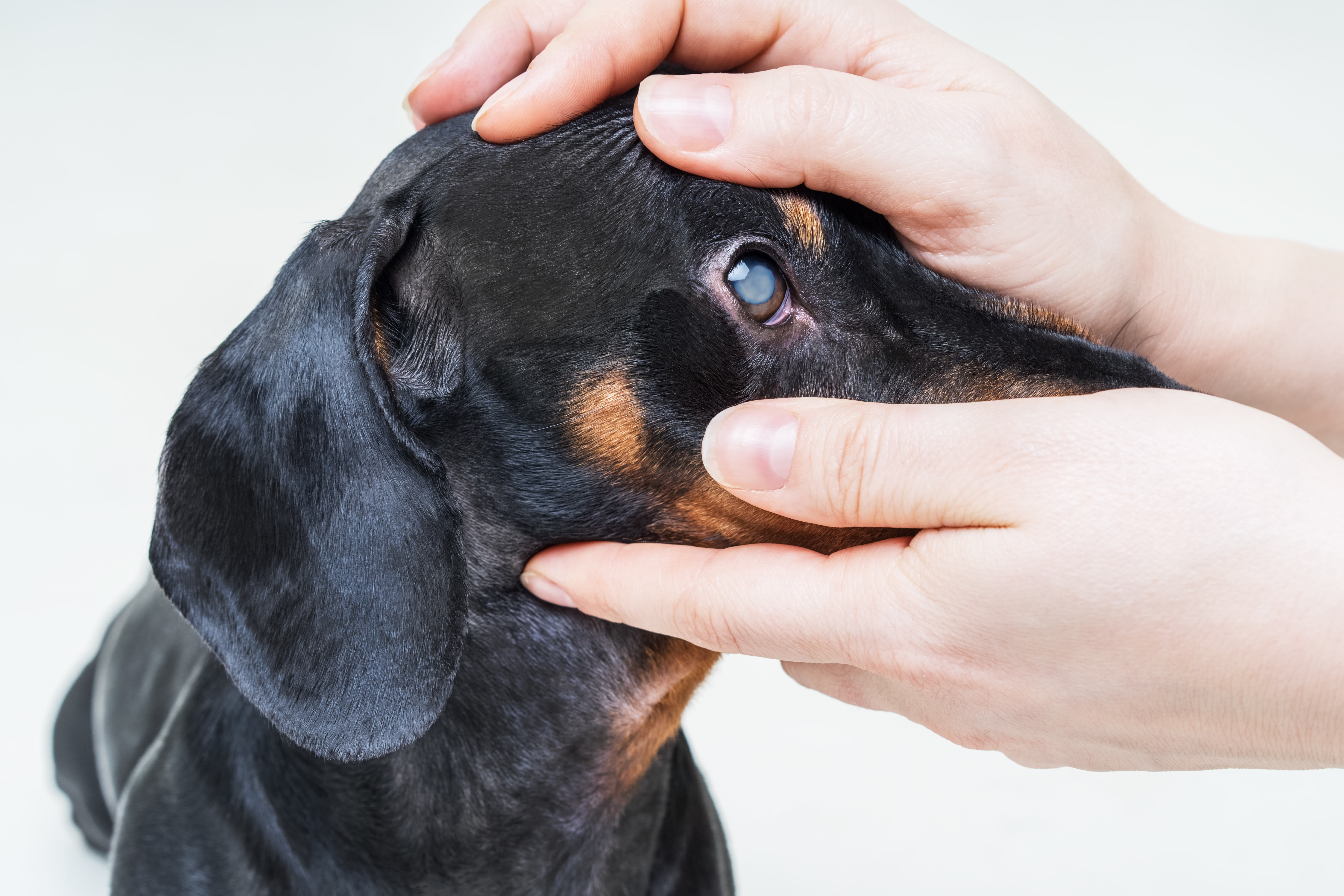Dogs are extraordinary animals, and for many people, a significant part of their family.
Like people, a dog's eyes can share vital information about their health. Issues like liver disease, diabetes, anemia, poisoning, head trauma, pain, auto-immune diseases, and cancer can all present indicators in the condition of a dog's eye.
Our Memphis veterinarians provide some information about the symptoms, causes, and treatment options for vision problems in dogs.
Symptoms of Vision Problems
Whether it's due to aging or other conditions, these are some symptoms that suggest your dog may be losing their vision:
- Eyes become cloudy
- Bumping into objects
- Changes in behavior that indicate anxiety or hesitation in new places
- Unwillingness to go up or down stairs, or jump onto furniture
- Swollen, puffy or inflamed eyes
- Obvious eye irritation or pawing at face
- Confused, dazed, easily startled
Causes
A dog's vision can become impaired due to aging, disease, injury, and hereditary reasons. The natural aging process can sometimes include vision loss, ranging from minor issues to full blindness.
However, it's important to understand that occasionally blindness itself isn't the primary issue, but rather a secondary issue of an underlying condition, such as heart disease, kidney or liver disorders, or systemic diseases.
While there are many conditions that may cause vision loss, some more common reasons include:
Diabetes
Diabetes in dogs is becoming more common. Those at a higher risk of becoming diabetic include older dogs of large breeds, females that are breeding, dogs that have poor nutrition, and obese dogs. Cataracts will develop in more than 75% of dogs with diabetes. This can result in full or partial blindness.
Glaucoma
Glaucoma feels similar to a migraine headache. It's a painful condition that does have treatment available, but the outcomes are best with early diagnosis. If your dog has yellow or green discharge from their eyes, dilated pupils, bloodshot eyes, or is slow to react to bright light, contact your vet as soon as possible. Without intervention, glaucoma can lead to partial or complete blindness.
Cataracts
Another serious condition your dog may encounter is the development of cataracts. This is usually noted by a cloudy appearance of the eye which stops light from fully reaching the retina. Cataracts can be operated on which may prevent blindness, but early intervention is key.
Progressive Retinal Atrophy
Progressive Retinal Atrophy (PRA), while painless, causes a deterioration of the retina, which leads to blindness in both eyes. It is inherited and develops at a slower rate, which allows your dog to adjust slowly to losing their sight.
Sudden Acquired Retinal Degeneration Syndrome
Like PRA, Sudden Acquired Retinal Degeneration Syndrome (SARDS) causes a deterioration of the retina, which leads to blindness in both eyes. With this syndrome, however, the blindness develops much more quickly and can result in total blindness within days or weeks. This is much harder on your pet as there is less time to adjust.
Treatment of Vision Problems in Dogs
As with any condition, if you are unsure about the severity or effects that any of these symptoms may cause, consult your vet. Typically, vision issues will not go away on their own, and early intervention is key with most instances of sight loss.
Some of the conditions that could lead to blindness may even trigger other issues, or blindness might be a symptom of larger medical concerns.
Making an appointment with your vet for a full examination is the best way to prevent further complications, and possibly save your dog's sight.
To learn more about blindness in dogs, contact our Southeast Memphis vets to book an appointment today.

Looking for a vet in Southeast Memphis?
We're always accepting new patients, so contact our veterinary hospital today to book your pet's first appointment.
Related Articles View All
Signs, Causes & Treatments for Ear Mites in Cats
Ear mites cause uncomfortable irritation to a cat's ears and skin, but with diligent care, this parasite is fairly straight forward to treat. Here, we explain how to spot the signs of ear mites in cats and how ear mites can be treated.
How Long to Quarantine Dog with Ringworm
If your dog has patches of hair loss with a crusty coating, it could be ringworm. Today, our Memphis vets explain the signs of ringworm in dogs, how it is diagnosed, and how to prevent the spread of ringworm to other pets.
Why does my dog's breath stink so bad?
If you love your pup but find yourself repulsed by their breath, it's time to take action and get your relationship back on track! Our Memphis vets explain a few causes of bad breath in dogs and why it's important for your four-legged friend to see a vet for a diagnosis.
How Long Can You Leave A Dog Alone?
Most pet parents need to leave their dog alone while they head out to run errands, earn a living or spend time with friends. The question is, how long can you leave your dog alone safely? Our Memphis vets share some advice.
Your Puppy's First Visit to The Vet - What to Expect & What to Bring
You have an adorable new puppy and now it's time for your puppy's first visit to the vet. Our Memphis vets explain what you should expect during your puppy's first vet visit and what to bring along with you.

